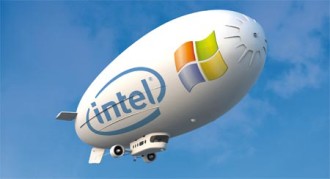 A new report published by SLI Systems finds many retailers view Amazon as both friend and foe.
A new report published by SLI Systems finds many retailers view Amazon as both friend and foe.
In this second quarterly 2017 E-commerce Performance Indicators and Confidence Report, SLI Systems provides survey findings from 213 e-commerce professionals around the globe. Respondents represent mid-size retailers, with a mix of business models, including pure e-commerce, as well as omnichannel merchants.
Retailer forecasts for online and mobile revenues continue to be strong worldwide, despite declines in confidence this quarter compared with Q1 2016. Also a good sign, far more omnichannel retailers plan to increase, rather than decrease, the number of stores in 2017.
SLI Systems CMO Chris Brubaker said that this quarter SLI took a different look at the relationship between Amazon and online retailers.
He said: “We asked those who sell via Amazon why they do so, as well as the extent to which they view Amazon as a competitive threat. While consumers are shopping Amazon Prime Day with glee, for merchants, the perks of leveraging the online giant come with some concern.”
“Nearly 70 percent of the retailers we surveyed that sell on Amazon reported being somewhat or very worried that Amazon will use their sales data to compete with them, indicating they view Amazon as more of a ‘frenemy.'”
E-commerce Revenue: 86 percent of respondents worldwide expect their e-commerce revenue to increase this quarter compared to Q2 2016. UK retailers appear the most optimistic with a third predicting growth at 21percent or more.
More than 81 percent worldwide expect revenue from mobile sites and apps to increase in Q2 2017 compared to Q2 2016; 22percent expect a boost of 21 percent or more.
More than 39 percent worldwide expect an increase, with 14 percent expecting a decrease; in Q1 2017, 46 percent of respondents expected an increase.
More than 45 percent of UK retailers surveyed expect to add websites or brands and 90percent (highest among regions) expect to add products or product lines during Q2.
More than 41 percent of UK respondents plan to hire new employees in Q2 (down from 55percent in Q1 2017), lowest among regions and compared to 57 percent worldwide.
Only 24 percent of UK respondents will begin selling on a new marketplace (lowest among regions). 28 percent of UK retailers expect to begin selling to new geographic markets during Q2 2017 (compared to 40percent in Q1 2017).
Customer Experience (CX) remains king in Q2 despite declining as the top choice worldwide compared with Q1. Replatforming climbed to the second top priority worldwide with 17 percent in Q2, up from 11percent in Q1.
Nearly a quarter of UK respondents expect to increase the number of stores in 2017; 33 percent will keep the same number of stores.
In European countries, outside of the UK, growth is expected by a full 50 percent .
Across both the UK and Europe, only six percent expect to shrink their brick-and mortar presence.
 The acquisition mad distribution brand that’s backed by Rigby Group has made another purchase.
The acquisition mad distribution brand that’s backed by Rigby Group has made another purchase.


















